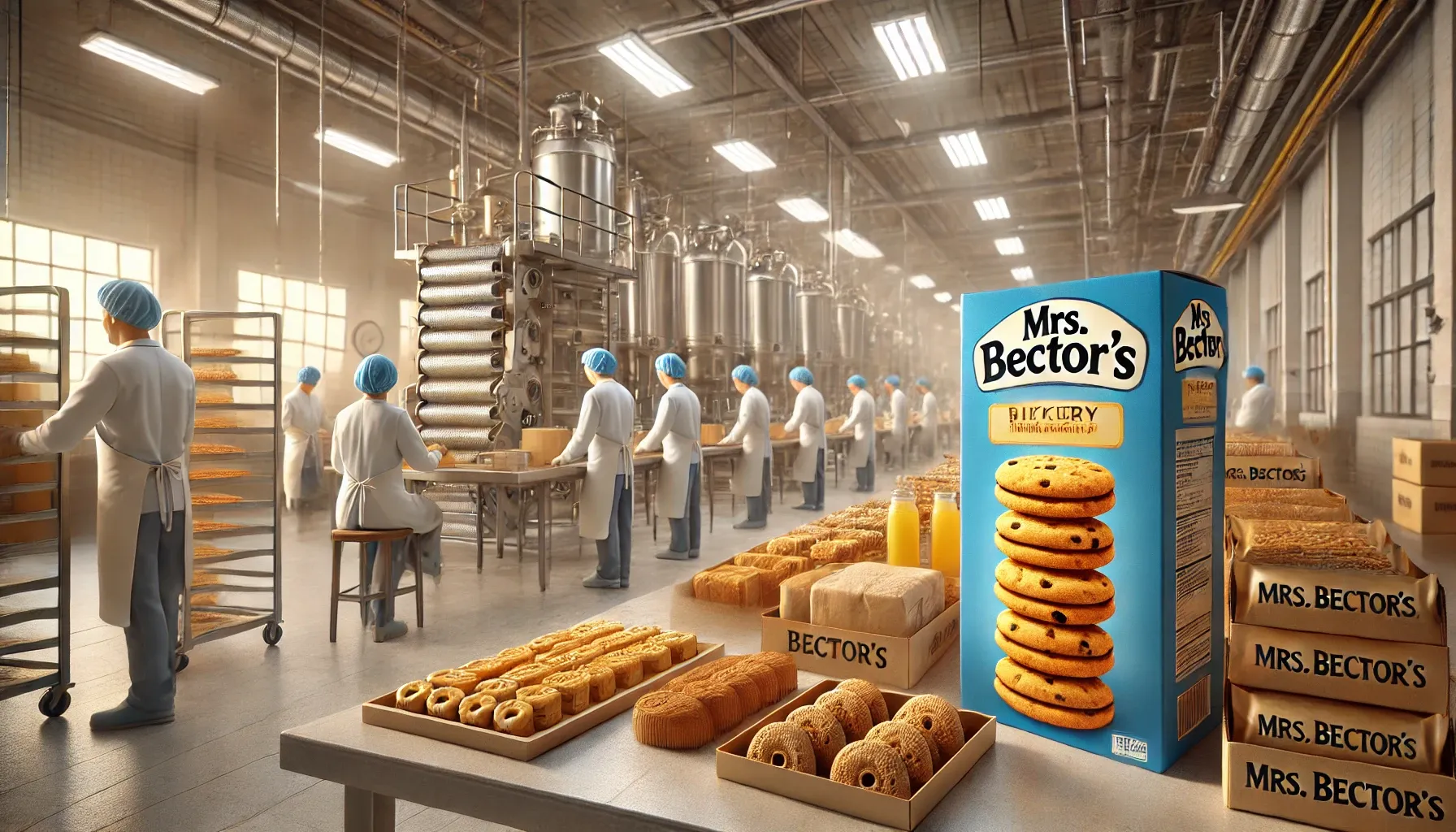Mrs. Bectors: A Rising Star in India’s FMCG Landscape
Last Updated
1st April, 2025
Date Published
1st April, 2025
Share This Post With Someone

Context:
Published on March 31, 2025, in The Indian Express under "Smart Stocks," this article by Harish Damodaran explores Mrs. Bectors Food Specialities Ltd., a standout performer in India’s Fast-Moving Consumer Goods (FMCG) sector. With a 46% CAGR over four years, the company exemplifies how FMCG firms—characterized by high-turnover, low-cost consumer goods—can achieve premiumisation and profitability. This case study offers insights into economic growth, market strategies, and the evolving FMCG industry, critical for understanding India’s consumer economy and industrial dynamics.
Case Study Points:
- Company Overview: Mrs. Bectors Food Specialities, founded in 1978 by Rajni Bector, has grown from a home kitchen into a listed entity with flagship brands Cremica (biscuits) and English Oven (bread).
- FMCG Definition: FMCG refers to Fast-Moving Consumer Goods—everyday essentials like biscuits, bread, and snacks with high sales volume, low margins, and quick turnover, typically sold through widespread retail networks.
- Growth Trajectory: Achieved a 46% Compound Annual Growth Rate (CAGR) in earnings over four years, reflecting robust financial compounding in a competitive sector.
- Stock Performance: Since its 2020 IPO at ₹288/share, the stock has risen 5x to over ₹1,400/share by March 2025, showcasing investor confidence in its growth model.
- Revenue Breakdown: Domestic sales contribute 69%, while exports (31%) span 70+ countries, with biscuits making up nearly half of export revenue.
- Premiumisation Strategy: Shifted focus to premium biscuits (42% of domestic biscuit revenue, up from 28% in FY22), leveraging pricing power and consumer preference for quality.
- QSR Partnerships: Sole supplier of buns to major Quick Service Restaurants (QSRs) like McDonald’s, KFC, and Burger King, ensuring stable B2B revenue.
- Export Expansion: Transitioning from low-margin contract manufacturing to higher-margin private label exports, with a new UAE subsidiary targeting MENA and African markets.
- Financial Health: Boasts a 46% gross margin (comparable to Britannia), zero debt, strong return ratios, and consistent free cash flow, underpinning its compounding engine.
- Market Penetration: Cremica holds a 5% share in North India’s organised biscuit segment, while English Oven ranks among the top three premium bread brands in metro markets.
- Valuation Debate: Trades at 60x FY24 earnings, seen as high for FMCG, but justified by quality earnings, visible growth levers, and untapped potential in organised markets.
- Segment Dynamics: Operates in biscuits (commoditised yet premiumising) and bakery (formalising as consumers shift from unbranded to branded bread).
- Competitive Edge: Benefits from supply chain superiority in fresh, chilled, and frozen bread, and regional brand-building in under-penetrated markets.
- Growth Levers: Volume-led premiumisation, export diversification, and QSR dominance position it for sustained double-digit growth, unlike peers reliant on price hikes.
- FMCG Relevance: Reflects broader FMCG trends—rising urban demand, organised sector growth, and export potential—key to India’s economic narrative.
Understanding FMCG for Aspirants:
FMCG is a cornerstone of India’s consumer economy, encompassing affordable, frequently purchased goods with rapid sales cycles. For aspirants, it’s vital to grasp its role in driving GDP, employment (via manufacturing and retail), and export earnings. Mrs. Bectors illustrates how FMCG firms adapt to consumer shifts (premiumisation), leverage scale (QSR tie-ups), and tap global markets, aligning with national goals like Make in India and economic self-reliance.
Key Terms:
- FMCG: Fast-Moving Consumer Goods—low-cost, high-volume consumer products like food and toiletries.
- CAGR: Compound Annual Growth Rate—measures yearly growth over a period.
- Premiumisation: Strategy to shift sales toward higher-value, premium products.
- QSR: Quick Service Restaurant—fast-food chains driving consistent demand.
- Gross Margin: Revenue minus cost of goods sold, indicating profitability.
- Private Label: Retailer-branded products manufactured by companies like Mrs. Bectors.
- Return Ratios: Metrics like ROE assessing profit efficiency on invested capital.
- Free Cash Flow: Cash generated after expenses, signaling financial strength.
Link To The Original Article – https://indianexpress.com/article/smart-stocks/mrs-bectors-silent-compounding-machine-india-fmcg-space-9916732/